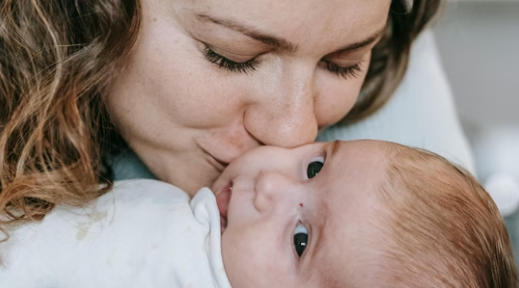In a world where affection is often expressed through kisses, a new study has raised concerns about the potential dangers of kissing newborns and infants, urging parents to reconsider this common display of love. While kissing is a natural way to bond, the research warns that it can lead to the transmission of harmful bacteria and viruses, especially in the first few months of a baby’s life.
The study, which analyzed infant health and the transfer of germs, reveals that newborns have developing immune systems, making them more susceptible to infections from external sources. In particular, parents and caregivers may unknowingly pass on harmful bacteria or viruses through close contact like kissing. The risks are heightened in environments where individuals may be carrying respiratory or other contagious illnesses.
In response to these findings, health experts suggest that while physical closeness, such as cuddling, holding, and gentle touch, is crucial for bonding, kissing babies—especially on their face or mouth—should be avoided. This caution is particularly emphasized in the early months, when babies are most vulnerable to infections.
Despite the findings, experts acknowledge that parental affection is important for a baby’s emotional and social development. The key, however, is to ensure that this affection is expressed safely, minimizing the risk of germ transmission. Washing hands, avoiding close contact when sick, and ensuring that those around the baby are healthy can help protect the infant from unnecessary risks.
While the instinct to kiss your baby may be strong, the study encourages parents to consider alternative ways to show affection, such as soft words, gentle touches, and snuggles, to help ensure the health and safety of their newborns.








 India
India











